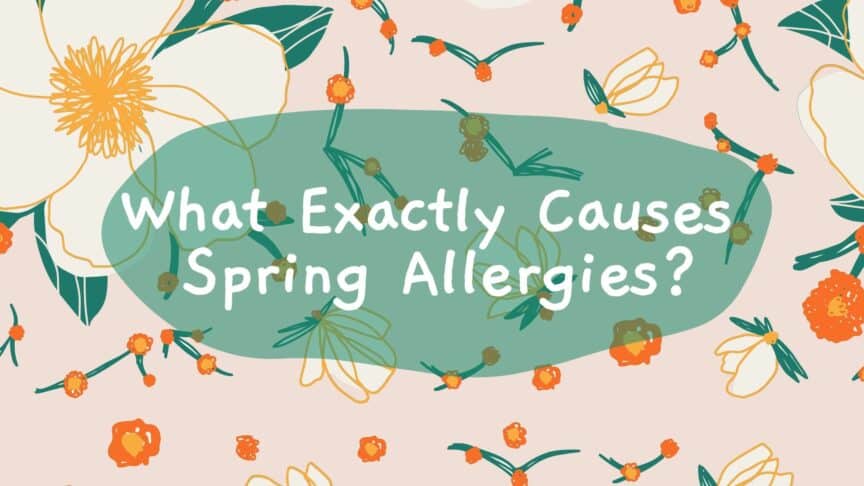Spring is an exciting time of the year. The weather is getting warmer, flowers are blooming, and there’s more sun! But this can also be a challenging time for people who experience spring allergies. According to the Asthma and Allergy Foundation of America, spring allergies affect more than 50 million people each year. People have to navigate various symptoms including sneezing, watery eyes, congestion, itchy throat etc. which can be experienced mildly to severely. These symptoms are not only unpleasant to constantly deal with but can really impact daily life and being outside. Fortunately, there are useful ways you can treat spring allergies, reducing their impact on your health and wellness!
Causes of Spring Allergies
Spring allergies, also known as allergic rhinitis or hay fever, are most often caused by pollen. Trees, grasses, and weeds release pollen into the air which fertilizes other plants. Pollen is most pervasive during Spring and Summer months when plant life is in full bloom. When a person who experiences spring allergies comes into contact with pollen – through breathing it in, pollen landing on the skin etc. – the body activates its defense system. The immune system mistakenly identifies the allergen (pollen) as potentially dangerous for the body and releases antibodies to attack the allergens, preventing any harm from being caused. This then leads to the immune system releasing histamine into the bloodstream which produces the symptoms we commonly associate with allergies: runny nose, itchy eyes, coughing, congestion etc.
The warmer temperatures and drier days during Spring allows pollen to stay in the environment for a longer period of time. Pollen can also easily travel which is why pollen count is the highest on breezy days. This increases peoples’ exposure to the substance, making Spring a common time that people experience allergies.
How to Effectively Treat Spring Allergies
If you are unsure about a potential allergy to pollen, visit your doctor for an official diagnosis. Your doctor will likely recommend an allergy test conducted by an allergy specialist. There are different types of allergy tests including blood and skin tests. A skin test involves a small amount of the allergen being inserted into the skin. If this produces a reaction (a small bump), then an allergy has been established. There are no cures for spring allergies but there are ways to effectively manage symptoms.
People typically use self-managed strategies and over the counter medications to alleviate symptoms. There are several types of nonprescription medications that are commonly used to tackle allergy symptoms including:
- Antihistamines: taken orally and reduce the amount of histamine in the body which provides relief from symptoms. Common types of antihistamines include: Claritin, Zyrtec, and Allegra.
- Decongestants: specifically works to alleviate nasal congestion. Decongestants can be taken orally or via nasal spray.
In addition to over the counter medications, there are natural remedies that people integrate to treat spring allergies. Common naturopathic strategies include:
-
- Rinsing nasal pathways with saline solution to alleviate congestion. You can do this using a neti pot or squeeze bottle. This drains the excess mucus in the nasal pathways that cause congestion.
- Steaming: steam from a machine or humidifier can also alleviate pressure by clearing mucus.
- Drinking tea, herbal mixtures etc. to treat sore or itchy throat.
Be sure to take the time to see what works best for you. People typically use a combination of these medications and strategies to provide sustainable relief from spring allergies.
Additional Useful Tips
In addition to medications and other remedies, there are a few tips you can integrate to reduce the impact of allergies. This includes the following:
- Stay aware of the pollen count. Check the weather forecast to learn pollen projections – pollen will be higher if there is wind and also during the mornings. Be sure to avoid the outdoors when the pollen count is high.
- Another way to reduce your exposure to pollen is by reducing outdoor activities – exercising, sitting, gardening, mowing the lawn, etc.
- Remove clothes worn outside when you are back indoors.
Establishing the medications, strategies, and safety measures that work best for you can really minimize the impact of spring allergies, allowing you to enjoy the season much more!
If you are struggling with allergies, we’re here to help! Contact us today and schedule an appointment with a physician to help alleviate your seasonal allergies.

